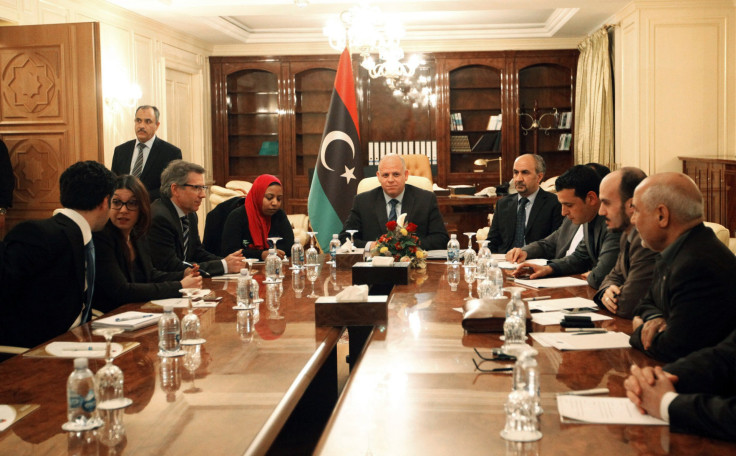Peace Talks For Unity Government In Libya Are Missing Crucial Supporters

The first of three United Nations-mediated peace talks to encourage dialogue among Libya’s many warring factions began Thursday, but some are skeptical of their success. Talks got off to a rocky start when the internationally recognized government’s warplanes hit Mitiga Airport in the Libyan capital Tripoli just as a delegation was taking off for the first round of negotiations in Morocco.
The dialogue aiming to set up in a unity government will include representatives from Libya’s House of Representatives, which is the government recognized by the international community, and the General National Congress, backed by several militias. However, talks failed to include representatives from other armed factions and tribal forces, and their support is crucial to the success of any unity government.
“The people who are representing the parties don’t have much command and control of the forces on the ground,” said Andrew Engel, an Africa analyst at the Washington Institute for Near East Policy. “This is a top-down process to Libya, but the country hasn’t ever worked that way.”
Libya is in the throes of the most violent chaos it has seen since the 2011 revolution that overthrew dictator Moammar Gadhafi. On the surface, the country is split into two political factions: the House of Representatives, headquartered in Tobruk in the far east of the country, and the General National Congress, which seized the capital Tripoli last year.
In September, U.N. envoy Bernardino León fled the country but later returned in bids to mediate between the two factions. León’s earlier attempts at peace talks failed as the two groups refused to sit together.
The GNC is backed by Libya Dawn, a coalition of Islamist militias, as well as various militias from the city of Misrata, many of which are considered to be moderate to secular and some of the strongest forces in the country. But the Misrata militias are not involved in the peace talks.
HOR, the legitimately elected government, is backed by forces loyal to Khalifa Hifter, a former general in Gadhafi’s army who is close to Egypt and has been battling Islamist militias. He was recently appointed head of the official Libyan army. Though HOR has sent a delegation to the peace talks, neither the army nor Hifter’s militia has representatives present.
Actual control on the ground is much more fragmented, and a large chunk of the country is divided among “Libya’s elected municipal councils, which have political and, to an extent, social legitimacy; and the country’s tribes, which have social and, to an extent, political legitimacy,” Engel wrote in "Libya as a Failed State: Causes, Consequences, Options,” published by the Washington Institute for Near East Policy.
Mediation among tribal leaders, council elders and the political factions must be carried out an individual level, sources in the country said. Each group has different relationships with foreign governments, and that must be taken into account if any government is to form without ostracizing some part of the nation.
“Libya is like a big jigsaw puzzle. You just have to put it back together piece by piece, and you do that by engaging the tribes, the Shura councils and the municipal councils,” Engel said.
© Copyright IBTimes 2024. All rights reserved.





















